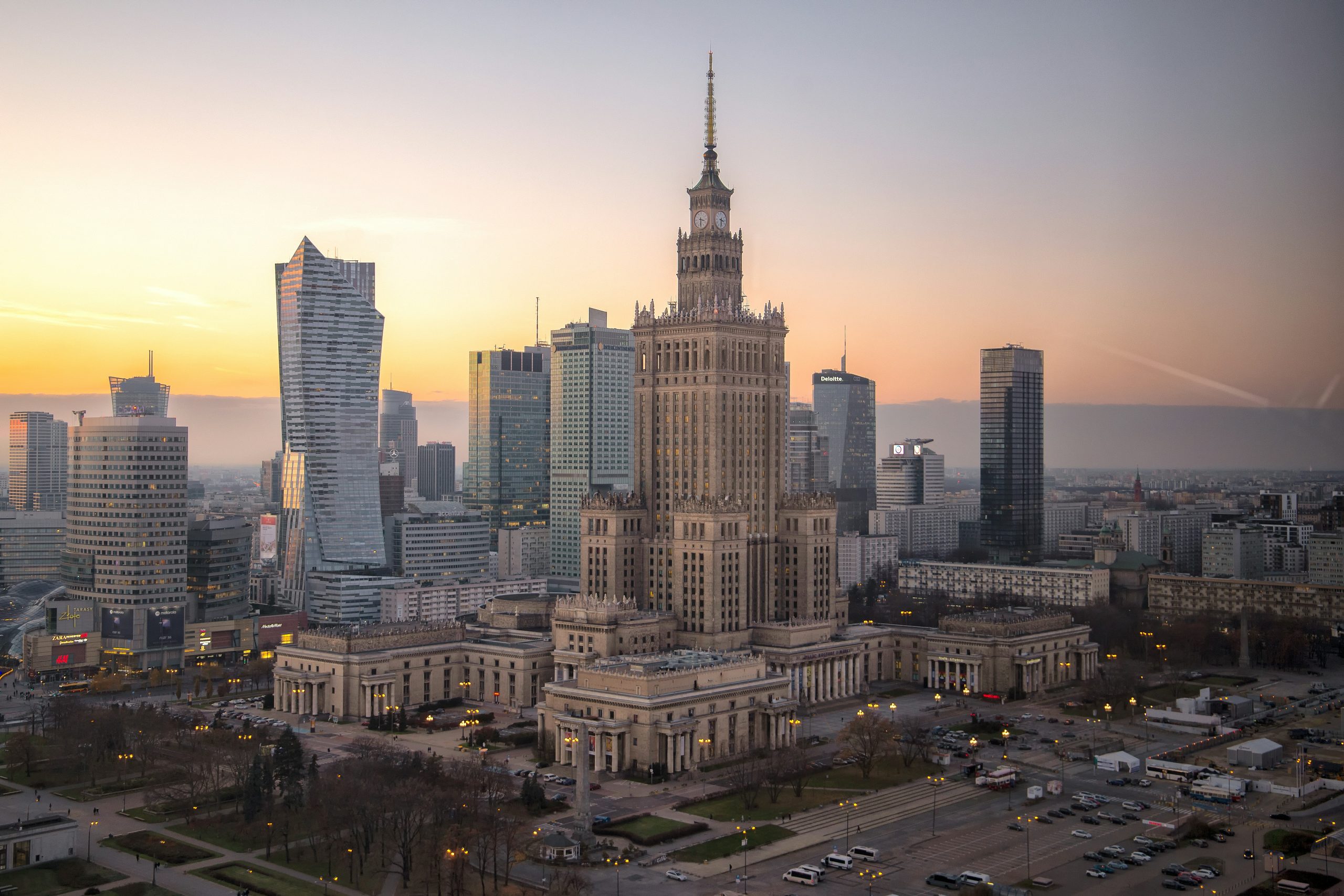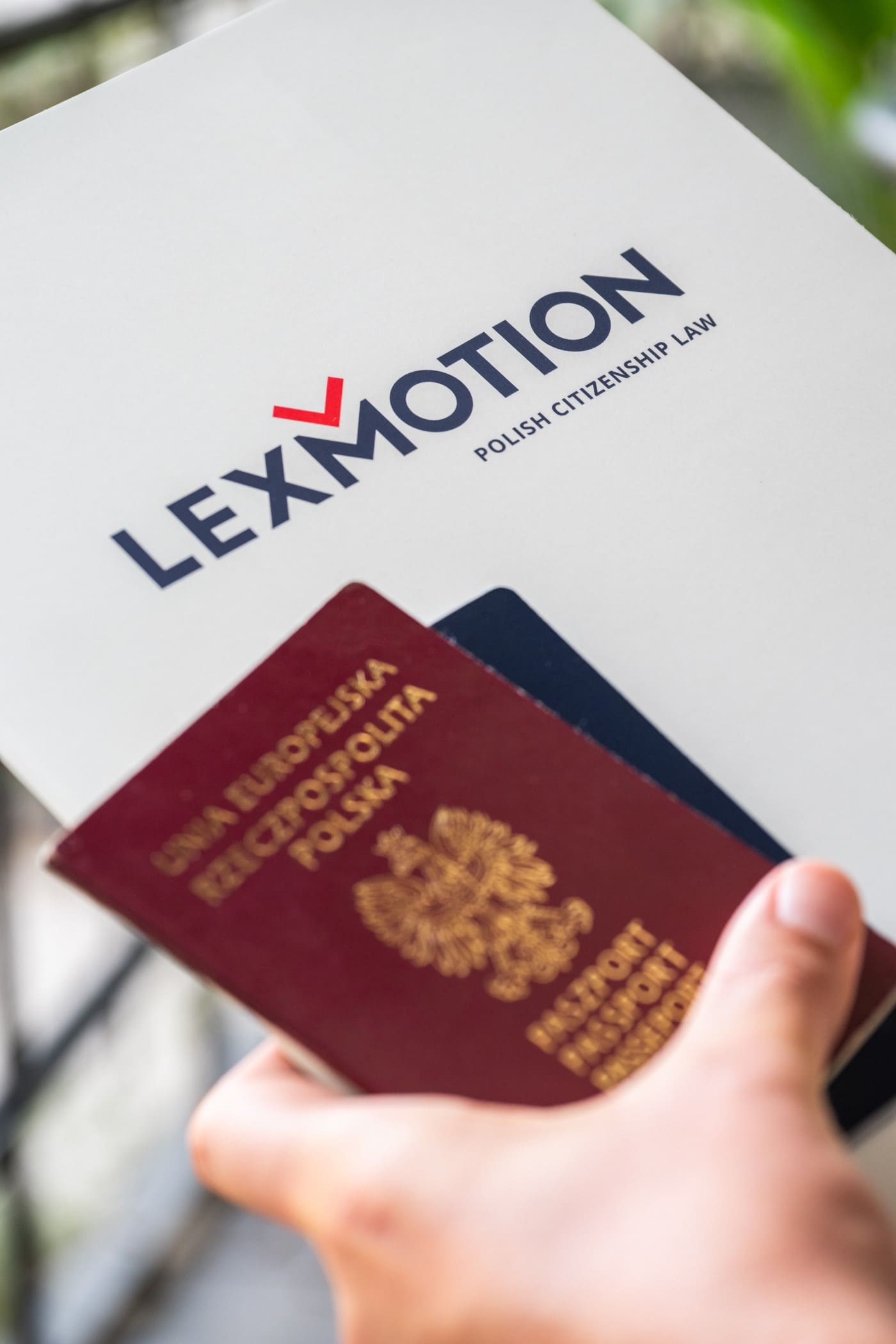What does dual citizenship mean? Is it allowed, and what does it mean for you? In this article, we will discuss the benefits and obligations associated with holding dual citizenship.
Becoming a dual citizen is increasingly popular in today’s globalized world.
Individuals with dual citizenship can move freely between the two countries, have access to healthcare, education, and employment systems in both nations, and benefit from diplomatic protection offered by both states.
In the case of holding citizenship from a European Union member state, these rights extend to all 27 EU countries, providing the opportunity to work, study, and access healthcare throughout the Union.
For those with Polish roots and looking to acquire Polish citizenship, dual Polish citizenship can be seen as an investment in the future, significantly increasing security and quality of life.
The Polish passport, available to every Polish citizen, is one of the most powerful in the world, granting easy travel to 176 countries across various continents, further enhancing the benefits of holding Polish citizenship.
In this article, I will explain what dual citizenship is, whether Polish law allows it, and the advantages of obtaining Polish citizenship alongside the existing citizenship status of your home country.
Key Takeaways
- What is dual citizenship?
- Does Polish law allow dual citizenship?
- Why is it beneficial to hold a second citizenship?
- What are examples of countries where Polish citizens hold dual status?
- How can we help you?
What Is Dual Citizenship?
Dual citizenship—also known as multiple citizenship—means that an individual is legally recognized as a citizen of two or more countries at the same time. Such a person holds both the rights and responsibilities associated with citizenship in each of these nations.
This status offers several benefits, including:
- Freedom of movement: A person with dual citizenship can travel and reside in both countries without needing visas or residence permits.
- Access to social benefits: The ability to access healthcare systems, education, and other social services in both countries.
- Voting rights: The right to vote and participate in the political processes of both nations.
- Professional opportunities: Expanded job prospects and business opportunities in both countries.
To learn more about the benefits of holding Polish citizenship within the EU, read the article Benefits of Polish Membership in the EU for You
Does Polish Law Allow Dual Citizenship?
Polish law supports dual citizenship, enabling individuals to retain their original nationality when confirming Polish citizenship. Granting Polish citizenship does not require giving up any other citizenship, and Polish nationals who acquire another nationality also maintain their Polish citizenship.
The process is guided by the Polish Citizenship Act, updated in 2012 to offer more flexibility. These changes make it easier to confirm Polish citizenship while keeping other nationalities.
Poland requires its citizens, including those with dual citizenship, to use Polish identification, such as a Polish passport, when interacting with Polish authorities. This is particularly important during border crossings, where Polish citizens are generally expected to present a Polish passport upon entering or leaving the country. In the past, this situation was sometimes referred to as the “Polish passport trap,” describing instances where dual nationals faced delays for not presenting a Polish passport. While enforcement of this rule has eased, carrying a valid Polish passport ensures a smooth travel experience and helps avoid potential inconveniences.
By understanding these guidelines, dual citizens can fully enjoy the benefits of Polish citizenship, including smoother interactions with Polish authorities.
People obtaining Polish citizenship when they already hold another citizenship do not need to renounce their original nationality. In other words, granting Polish citizenship does not mean losing any current citizenship status from another country.
Similarly, for those who are already Polish citizens, you will not have lost Polish citizenship upon receiving citizenship with another state.
The procedure for acquiring Polish citizenship is governed by the Polish Citizenship Act, which was amended in 2012. This amendment introduced more flexible rules, allowing individuals to confirm Polish citizenship without being required to give up their other nationality.
It’s important to note, however, that Poland does not recognize dual citizenship for the purposes of identification with Polish authorities.
What About Having Three or More Citizenships?
While this article mainly discusses dual citizenship, it’s important to note that having more than two national identities is also possible. For instance, if you already hold citizenship in multiple countries, you can still apply for Polish citizenship. Poland allows the possession of multiple citizenships, which can open even more doors for travel, work, and residency.
However, it’s essential to always verify the citizenship rules for each country involved. For example, both Poland and the USA require their citizens to use the appropriate passport when entering and leaving the country.

Check if you qualify for polish citizenship by descent



Why Is Passport Diversification Important?
Having more than one passport, including a Polish one, grants access to many countries without needing a visa.
This is especially beneficial for people who travel frequently, either for business or leisure.

Passports issued from Poland regularly prove to be one of the strongest in the world, offering visa-free or visa-on-arrival access to 176 out of 195 countries. With it, Polish passport holders can travel freely to many destinations, making it highly attractive and practical for those who value freedom and mobility.
The Polish passport ranks 4th globally, offering visa-free or visa-on-arrival access to 176 out of 195 countries, making it a top choice for global mobility.
Polish citizenship is particularly valuable because it grants access to the entire European Union, not just Poland itself.
It allows you to settle, work, and enjoy educational and healthcare systems in any EU country. This means more professional and personal opportunities, greatly enhancing your quality of life.
Having multiple passports also provides greater security and stability. If you ever need to, you can quickly and legally move to another country. This gives a sense of safety and the assurance that you always have alternative options.
Passport diversification also increases international opportunities. It’s easier to open bank accounts, invest, and conduct business across various countries.
Examples of Polish Dual Citizenship Around the World
Dual citizenship is becoming increasingly popular worldwide, bringing numerous benefits to individuals who hold citizenship in more than one country.
People of Polish descent living outside of Poland, while often losing direct contact with Polish culture, may still have the right to Polish citizenship. This group is much broader than the traditional “Polonia,” which often maintains active ties with Poland and regularly renews their passports through Polish consulates.
However, because more and more people chose to confirm Polish citizenship by descent, this means more Polish citizens can be found throughout the world. Learn more about Polish citizenship requirements.
Many individuals of Polish origin who do not belong to typical Polish communities take advantage of the opportunity to confirm their Polish citizenship to access benefits such as the right to work and travel within the European Union. For individuals with Polish ancestry living in countries like the United States, Canada, Australia, or the United Kingdom, Polish citizenship can open new opportunities.
Here are some examples from selected countries:
Polish-American Citizenship
About 8 to 10 million Polish-Americans live in the United States.
The USA has a rich history of Polish immigration, with cities like Chicago known for their large Polish communities, where the Polish language is still sometimes spoken.
Polish-Americans can confirm their Polish citizenship by descent, which allows them to travel freely within the European Union and work and travel in EU countries without needing a visa.
However, it’s important to remember that both Poland and the USA require the use of appropriate passports when entering and leaving each respective border.
Polish-British Citizenship
Around 700,000 Britons of Polish origins live in the UK.
Many of our clients are descendants of soldiers from General Anders’ army, who emigrated after World War II. Their Polish ancestors fought for Poland’s freedom, and after the war, they settled in various parts of the world. Today, their descendants are returning to restore Polish citizenship and benefiting from this heritage.
After Brexit, the benefits of holding Polish citizenship have become even more significant, allowing Britons of Polish descent to continue enjoying EU privileges, such as the right to free movement and work in member states.
Polish-Canadian Citizenship
There are about 1.2 million people of Polish descent living in Canada.
The history of Polish immigration to Canada dates back to the 18th century. Polish-Canadians can confirm their Polish citizenship through their heritage.
Both Polish and Canadian law accept dual citizenship, allowing individuals to benefit from the broad opportunities available in both countries.
Polish-Australian Citizenship
Around 200,000 people in Australia identify as Polish-Australians.
Poles began immigrating to Australia in the 19th century, and their numbers increased significantly after World War II.
Australia allows dual citizenship, which enables Polish-Australians to enjoy the privileges of citizenship in both countries, such as the right to work, travel, and access education and healthcare systems.
How Can You Confirm Polish Citizenship by descent?
In the above situations, many had a similar situation. Their Polish ancestors had left Poland years or even generations ago. However, because Poland often still considers such descendants as Polish citizens from birth, in most cases, they are able to confirm Polish citizenship by descent.
Unlike other paths to obtaining Polish citizenship, this does not require you to speak the Polish language or live in Poland. It can be done from your own country, often via the Polish consulate. If one of an applicant’s parents, grandparents or even great grandparents were a recognized Polish citizen, then you and other family members may be eligible.
Summary
Dual citizenship offers a wide range of benefits, from the freedom to travel to the ability to enjoy civic rights in two countries.
Polish law allows dual citizenship, making it an attractive option for individuals with Polish roots or those who want to immerse themselves more in Polish culture and economy. Such individuals can receive Polish citizenship by descent, giving them the rights of both countries, a
In today’s global mobility era, dual citizenship becomes a valuable asset, allowing people to build bridges between nations and cultures.
By investing in dual citizenship, you invest in a better future for yourself and your descendants.
Frequently Asked Questions
Can Polish citizens hold dual citizenship?
Yes, Polish law allows its citizens to hold dual citizenship.
This means that if you acquire citizenship from another country, you do not lose your Polish citizenship. Similarly, people born with multiple citizenships, including Polish, retain all their citizenships under Polish law. In Poland, however, you will always be treated as a Polish citizen, regardless of your other nationalities.
What are the benefits of holding dual citizenship, including Polish citizenship?
Holding dual citizenship, including Polish, offers numerous benefits. For example, as a Polish citizen, you have the right to live, work, and travel freely within the European Union. This can provide significant advantages in terms of employment opportunities, education, and quality of life.
Additionally, dual citizenship can offer greater travel flexibility, allowing you to enter more countries without needing a visa.
Do I have to renounce my existing citizenship?
Modern Polish law does not require citizens to renounce their existing citizenship when granted Polish citizenship. As a result, dual citizenship is allowed in most cases.
We say “in most cases” because this depends on the laws of both countries involved.
It is also worth noting that obtaining a passport is tied to citizenship. Therefore, if you hold both American and Polish citizenship, for example, you can also obtain both an American and a Polish passport.
This is important in cases where countries require their citizens to use the appropriate state-issued identification documents.











